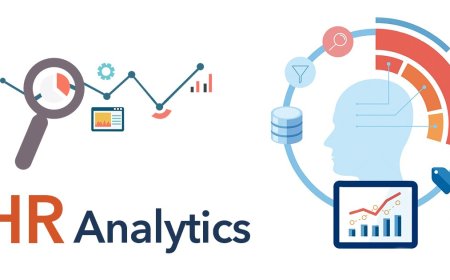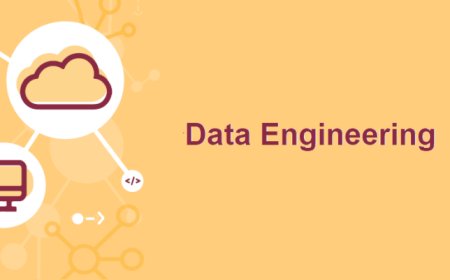Data Engineer Roles and Responsibilities
Design, develop, and maintain data architecture. Create efficient data pipelines. Collaborate with data scientists. Ensure data quality and integrity. Implement ETL processes. Manage large datasets. Optimize database performance. Troubleshoot data-related issues. Stay updated on tech trends.

In the current tech-driven globe, data engineers are vital players who can handle large datasets and satisfy the increasing demand for qualified specialists. These experts make sure that data is managed efficiently and flows freely throughout enterprises. They play a critical role in preserving the accuracy and availability of information, which greatly enhances the effective operation of contemporary businesses in the age of technology.
The Evolving Data Scenery
The vast amount and complexity of data in the modern digital environment necessitate a certain skill set to handle, filter, and transform raw data into insightful knowledge. In this particular case, data engineers play a pivotal role as the intermediary between unprocessed data and interpretable information, enabling the conversion of data into valuable business insight for enterprises.
The Complex Web of Data Challenges
Organizations confront many difficulties as they gather massive volumes of data, including maintaining data quality, integrating various data sources, and growing their data infrastructure. These complexities highlight how crucial it is to have knowledgeable data engineers who can address these problems head-on.
What are the Key Roles and Responsibilities of Data Engineers?
Understanding the intricacies of the data engineer's role requires a closer look at their specific responsibilities. Let's break down the key elements of their job description.
Roles and Responsibilities of Data Engineers
1. Data Architecture Design
Data engineers are tasked with designing and constructing robust data architectures. This involves creating data models, defining data flow, and ensuring that the architecture can scale to meet evolving business needs. They work closely with data architects to establish a solid foundation for data storage and retrieval.
2. Data Integration
Integrating data from various sources is a common challenge for organizations. Data engineers are responsible for developing and maintaining ETL (Extract, Transform, Load) processes, ensuring seamless data integration. This involves cleaning and transforming raw data into a consistent format for analysis.
3. Database Management
Efficient database management is at the core of a data engineer's responsibilities. They work with different database technologies, optimizing schema designs, and fine-tuning performance to enhance data retrieval speed. Whether it's a traditional relational database or a cutting-edge NoSQL database, data engineers ensure the data is organized and accessible.
4. Data Quality Assurance
Maintaining the quality of data is paramount for generating accurate insights. Data engineers implement data quality checks and validation processes to identify and rectify anomalies in the data. They collaborate with data scientists and analysts to ensure that the data used for analysis is reliable and accurate.
5. Big Data Technologies
In the era of big data, data engineers are often well-versed in technologies like Hadoop, Spark, and Kafka. They leverage these tools to process and analyze large datasets efficiently. Their expertise in big data technologies enables organizations to extract valuable insights from massive amounts of information.
6. Data Security and Compliance
With the increasing emphasis on data privacy and security, data engineers play a crucial role in implementing measures to safeguard sensitive information. They ensure that data storage and transmission adhere to industry regulations and compliance standards, protecting the integrity of the data.
7. Collaboration with Cross-functional Teams
Effective communication and collaboration are essential skills for data engineers. They work closely with data scientists, analysts, and other stakeholders to understand data requirements and deliver solutions that meet business objectives. Collaboration ensures that data engineering efforts align with the overall goals of the organization.
8. Continuous Learning and Adaptation
The field of data engineering is dynamic, with new technologies emerging regularly. Data engineers are responsible for staying abreast of industry trends, learning new tools and techniques, and adapting their skill set to meet evolving data challenges. This commitment to continuous learning is vital for staying relevant in this rapidly changing scene.
Skills Required to Become a Data Engineer
1. Programming Proficiency
One of the foundational skills for a data engineer is proficiency in programming languages commonly used in data engineering tasks. Python, Java, and Scala are among the most popular languages in the field. A strong command of these languages is essential for tasks such as data extraction, transformation, and loading (ETL), as well as for building scalable data pipelines.
2. Database Management
Data engineers must be adept at working with various database systems, both relational and non-relational. Knowledge of SQL is crucial for querying and manipulating data stored in databases. Additionally, expertise in databases like MySQL, PostgreSQL, MongoDB, and Cassandra is valuable for designing and optimizing data storage solutions.
3. ETL (Extract, Transform, Load) Processes
The core responsibility of a data engineer often involves designing and implementing ETL processes to move and transform data between systems. This requires a deep understanding of data integration, data cleansing, and data transformation techniques. Familiarity with ETL tools and frameworks, such as Apache NiFi or Apache Beam, can enhance efficiency in managing these processes.
4. Data Modeling and Warehousing
Data engineers need to understand data modeling concepts to design effective data structures. Knowledge of data warehousing solutions, such as Amazon Redshift or Google BigQuery, is crucial for creating optimized storage environments and supporting analytical queries.
5. Version Control Systems
Using version control systems like Git is essential for collaborative development and code management. Data engineers often work on projects involving multiple team members, and a solid understanding of version control ensures efficient collaboration and tracking of code changes.
6. Problem-Solving and Analytical Thinking:
In addition to technical skills, data engineers should possess strong problem-solving and analytical thinking abilities. They need to approach data challenges strategically, troubleshoot issues, and optimize data processes for efficiency and performance.
Data Engineer Career Path
The trajectory of a data engineer's career is flexible, and shaped by individual skills, interests, and experiences. The following outlines a general career progression for a data engineer:
1. Entry-Level Data Engineer
-
Holds a bachelor's degree in computer science or a related field.
-
Possesses basic skills in programming languages, databases, and big data technologies.
-
Works on data engineering projects with guidance from more experienced peers.
2. Junior Data Engineer
-
Gains experience in data engineering.
-
Develops expertise in one or more programming languages, databases, and big data technologies.
-
Takes on more complex projects and assumes greater responsibility in designing and implementing data solutions.
3. Senior Data Engineer
-
Accumulates several years of data engineering experience.
-
Demonstrates proficiency in multiple programming languages, databases, and big data technologies.
-
Leads projects and teams of data engineers, contributing to the design and implementation of complex data solutions.
4. Lead Data Engineer
-
Exhibits extensive data engineering experience and leadership capabilities.
-
Oversees teams of data engineers, guiding and coordinating their efforts.
-
Plays a pivotal role in designing and implementing comprehensive data solutions across an organization.
5. Data Architect
-
Assumes responsibility for designing and implementing data architectures aligned with business objectives.
-
Collaborates closely with business stakeholders and data engineers to ensure scalable, reliable, and secure data solutions.
6. Data Infrastructure Manager
-
Manages an organization's data infrastructure, including databases, data warehouses, and big data technologies.
-
Leads teams of data engineers and collaborates with other IT departments to integrate data solutions with existing systems.
7. Chief Data Officer
-
Serves as a senior executive overseeing an organization's data strategy.
-
Ensures effective use of data to support business goals.
-
Manages data engineering, analytics, and governance functions.
-
Collaborates with other executives to position data as a strategic asset for the organization.
This career path highlights the progression from foundational skills to leadership roles, emphasizing the importance of expertise, experience, and leadership capabilities in the field of data engineering.
Data Engineer Salary
The average base salary for a data engineer in India is around ₹8,50,000 per year. However, this can vary based on several factors, such as location, years of experience, and the organization's size.
For instance, in metropolitan cities like Bangalore, Mumbai, and Delhi, a data engineer with 1-3 years of experience can expect an average base salary of around ₹7,00,000 - ₹9,00,000 per year, while someone with 4-6 years of experience can expect around ₹12,00,000 - ₹16,00,000 per year.
In smaller cities or towns, the average base salary for a data engineer can be lower than the metropolitan cities. Additionally, the salary can vary based on the individual's skills, certifications, and the specific tools and technologies they are proficient in.
The demand for data engineering skills is high in India, and the salary for data engineers is expected to grow in the coming years.
Data engineers are indispensable in navigating the evolving landscape of technology and big data. Their multifaceted responsibilities encompass designing robust data architectures, ensuring seamless data integration, managing databases, and upholding data security. Proficiency in programming, database management, and problem-solving is crucial. The career path for data engineers spans from entry-level roles to leadership positions, reflecting a trajectory of increasing expertise and responsibility. In India, data engineers command competitive salaries, with prospects for growth in tandem with the industry's expanding demands.










































